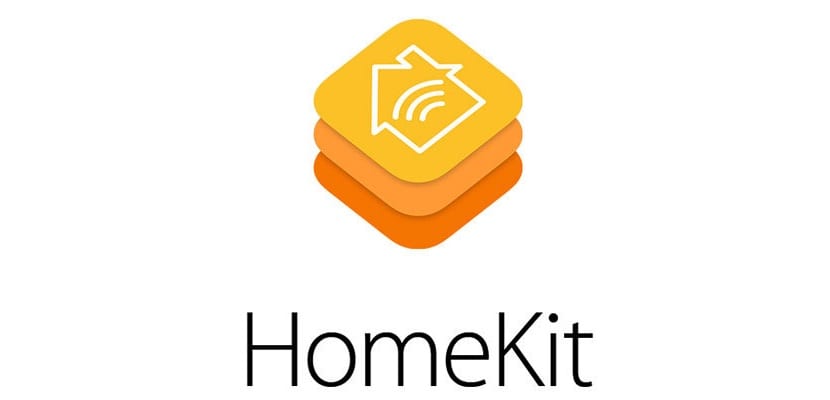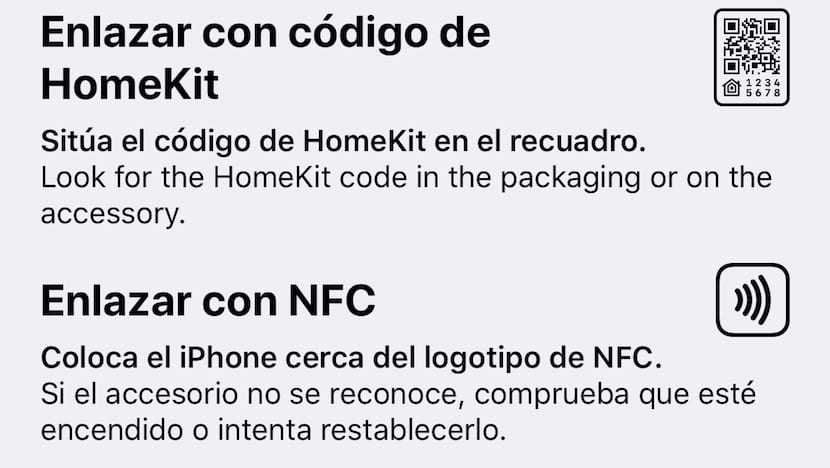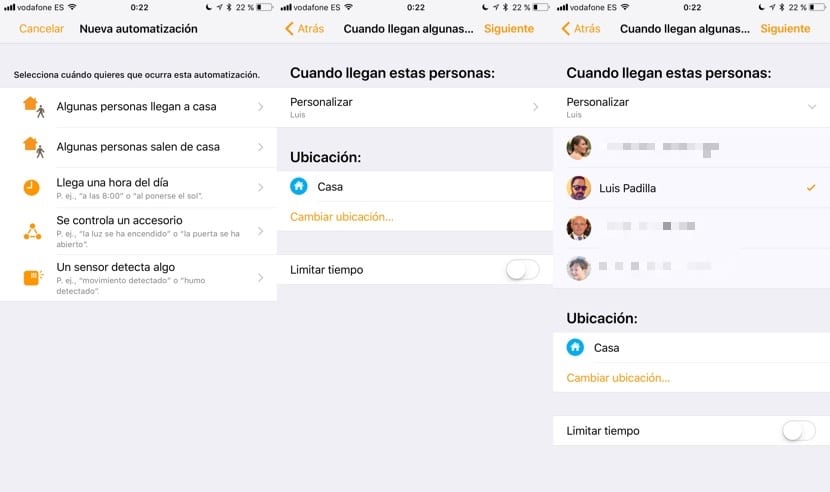
HomeKit is slowly gaining ground in the world of home automation, but it still had some points to improve in order to achieve the growth it needs to truly become something within the reach of anyone. Apple has finally decided on it and the arrival of iOS 11 will involve a series of changes that will help the platform finally take off.
Compatibility with more accessories such as sprinklers and taps, new requirements to certify devices, improved connectivity with lower latency and faster connection, simpler configuration, more automation options ... the list of changes is large and we detail them below.
Simpler and cheaper certification
Managing devices with a HomeKit compatibility certificate was not an easy task, which meant that in the end we were talking about higher-priced products than non-compatible ones. Apple required that they use their own chip that ensured the safety and compatibility of the product, but that will never be the case again. From now on the certification will be done through software, and that in addition to lowering the price of accessories will allow more manufacturers to enter this category and that products that are not compatible so far can be through a software update.
This will not compromise security because the software will be certified by Apple itself, which will continue to require full data encryption and maximum security to grant the "Compatible with HomeKit" label. Raspberry Pi and Arduino based HomeKit devices? Now it will be possible. It will also expand the testing laboratories with centers in China and the United Kingdom, which will be added to those already existing in the United States.

Even simpler and faster setup
The process of setting up a HomeKit-compatible device was fairly straightforward, but with the new support for QR and NFC codes it will be even simpler. In addition, it will not be necessary for the device to be turned on, something that is now essential. Bring the camera of your iPhone to the QR code that brings the HomeKit accessory and the setup process will start automatically. Manufacturers that include NFC chips for this procedure will be able to make use of them as well now that Appel has opened its NFC chip to third parties.
New accessory categories
The list of categories for HomeKit is quite long, but now two more are added: sprinklers and taps. Now home automation reaches the garden and We can control the irrigation of our grass and trees from our iPhone, deactivate it if we see that it is raining or activate it remotely from our vacation spot if a heat wave hits. The complete list of categories is as follows:
- Garage doors
- Thermostats
- Embedded
- Blinds
- Security
- humidifiers
- air conditioners
- Locks
- Air purifiers
- Lights
- Plugs
- Ventilators
- Cameras
- Stamps
- Sprinklers
- Faucets

New event triggers
Now automations will go much further with the new options that iOS 11 offers us, such as the possibility of activating an event when a certain person arrives home. No need for motion detectors that cannot discriminate between people, or advanced surveillance cameras that identify faces, because when you carry your iOS device and enter the house, the configured automation will be activated.
Automations can also be triggered when leaving home, or even when everyone has left home thanks to the "Last user leaves the place" option. Obviously this option has its limitations, and that is that the minimum distance at which it can work is 100m, so if you pass close to home it will be the same as if you enter. To achieve greater precision, you will have to continue using specific devices to detect your presence.
AirPlay 2 support
Apple presented AirPlay 2 at WWDC, and in addition to supporting multiroom to be able to listen to the same music in several rooms, it is also compatible with HomeKit, so that speakers compatible with this new specification will be able to enter into the automation system of the Home application. Not only will Apple's HomePod be compatible with AirPlay 2, major manufacturers have already confirmed that some of their current models are compatible. with the previous AirPlay will be compatible with AirPlay 2 through a firmware update.
Good news for HomeKit
In short, many of the requests that users requested have been fulfilled with these Apple announcements. Having accessories that are easier to manufacture and certify means that more brands will opt for this system, some will even be able to update their existing devices to be compatible with HomeKit through a simple update. And ultimately this means that there will be more supply and prices will drop, one of the great limitations to domotize your home today. More automation options, shorter response times, and more variety in accessories to complete a good HomeKit upgrade. The only thing missing is that HomeKit reaches the Mac and that we have cheaper options than Apple TV or an iPad to act as a control center.

Good news, but I don't know if it will be enough. The technology apart from Homekit is going very slow, too slow, so much so that it was one of the first and because it was so slow, its expansion has eaten up the ground and Amazon overtook it with its Alexa in just two years. Tim Cook promised last year on wwwc in June 2016 more than 100 homekit accessories coming very soon, and not only did they not arrive very soon, but we are still waiting. On the other hand, Amazon really advances fast and is open to third parties that I think that in home automation is very important. Apple has barely opened Siri to third parties for very specific things. And now the questions that remain in the inkwell with homekit:
1. What about homekit for Mac? For when a desktop application?
2. Will the multiroom work by zones? Let me explain: I can put a Beatles song in La Cocina and one by bon Javi in the pool, or I have to have the same song playing everywhere as happens with chomescast that synchronizes but only one song, you cannot put different music on each area of the house. And this is another of the problems that I see with homekit, what happens that Apple has not realized that families live in the houses and not only are single persons? I mean, even the dog has to have an iPhone? No one in the family can have an android, they should release an application on other platforms as they did with Apple Music.
3. What about the category of household appliances: washing machines, dryers, ovens, etc. Again, the competition has years of advantages.
4. What about a multi-user account. I repeat, families live in the houses and normally each one has their different stories, so they should be less closed with their system. If I tell the homepod, remember this tomorrow or call Maria, will she recognize my voice and write it down in my diary or does the whole family find out about my plans?
5. And now it's Spain's turn. If homekit is very slow, in Spain it is already exasperating. Except for the lighting, and a couple of cameras and a thermostat there is little else you can buy. What compatible air conditioner can you buy? None. What roller shutter motor? None, which garage door? None, what lock? None, what bell? None.
What is said or they really wake up or it will be too late when they do, because when people have spent a fortune on "gadgets" compatible with Alexa, for example, they will not then switch to Siri and throw away all the purchased devices.
Apple has time until Alexa and Google Home learn Spanish, so now you know. I would calculate less than a year. So you see, but for me this war is going to be the first you have lost in a long time, and it is a war in which a lot of money is at stake. But what was said unlike other occasions, when people have spent a pasture on other "gadgers" compatible with Alexa or Google Home due to lack of possibility in homekit, then they are not going to throw them away to be compatible with homekit. Steve job would not have missed this market and would have seen what I am commenting on